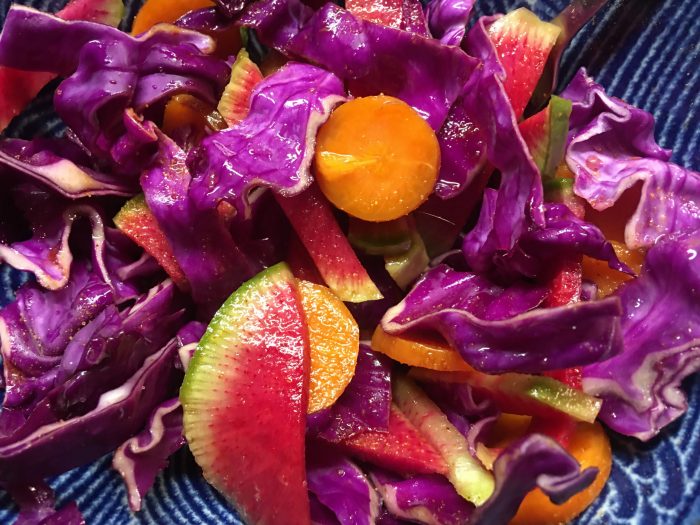Hermits don’t get out much. But it isn’t uncommon for a hermit to have to run to the grocer, speak with a utility company person, or actually have a job that requires interactions with others.
Myself, I get to work from home, but I still check in with my crew regularly, usually over email or text message. I see my son whenever he wants to come check in, but he’s independent. I see the delivery people when they drop off packages, too. I’d say the number of personal exchanges each month- those interactions which touch on individuals’ experience, thoughts and feelings, is about two. I am not counting any health appointments, as those are decidedly one-way.
What is the impact of this? Here’s an example. I had my mentor-friend, Captain, over for a masked dinner the other evening. He was here for about 90 minutes and we dipped our masks over chicken tacos and wine. We chatted about Byzantine art, about our sons, and about our personal approaches to painting and preferences for types of paint. It was an event. A meeting of two sentient beings. I learned this from my dad, Thad Ketchum, who always greeted people with a ceremonious nod and a bellowing, “Hello, [insert name]!”
I will reflect upon my visit with captain thoughtfully, thoroughly, and well into the future. As an ‘event,’ I value it and let it have impact upon me, be it as inspiration, growth, or, um… in cases requiring euphemism, ‘lessons.’
The process of savoring a friendship is equivalent to listening deeply. By permitting the other individual’s actions and intents to resonate, they are more precisely heard, even and especially in their absence, upon reflection.
Is that enough? Does that fill you up?
~Another friend, inquiring about my choice for seclusion.
Yes! It seems to do the trick. The phrasing of that questions begs the appetite analogy, which I think works well in many ways. Social encounters are in ways like nourishment. They are exchanges (mutual, hopefully) of bits of ideas and value that feed our sense of belonging and connectedness. And I do believe the quality of these experiences feeds our mental and emotional wellbeing. Often the most fruitful (pun intended) functions of analogy are the questions posed through the analogy’s extension.
If social exchanges are like food:
- Can they be healthy vs toxic? This language is widely in use already.
- Is it better to have a massive social feast once in a while, or have the same quantity drizzled over time?
- Is it important to have a variety of social exchanges, or is there a complete and perfect singular friend for each of us, like Tang or Pillsbury Space Food Sticks of yore?
- Is social gluttony a bad thing, or necessary for some?
- Similarly, is social famine bad in all cases?
Clearly social needs of individuals vary greatly. But based on our personal needs, I think we all have experienced social gluttony and famine (loneliness), even though one person’s gluttony may be another’s famine.
- What does a person who is experiencing an individually healthy amount and quality of socialization feel like, and how can they identify that optimal state for themselves?
- What can one do to remedy overfullness and famine? How can one rapidly recover the sensation of perfect satiety?
It’s likely that I have given this an excessive amount of thought, but that’s okay. I’d rather have mulled this thoroughly than have withdrawn into solitude ill-considered. Especially in these times of less frequent human exchange due to COVID19, I don’t think savoring friendships is a bad idea.
Picture: a colorful salad of a variety of vegetables that I grow. Friends can be marvelously colorful, too!
